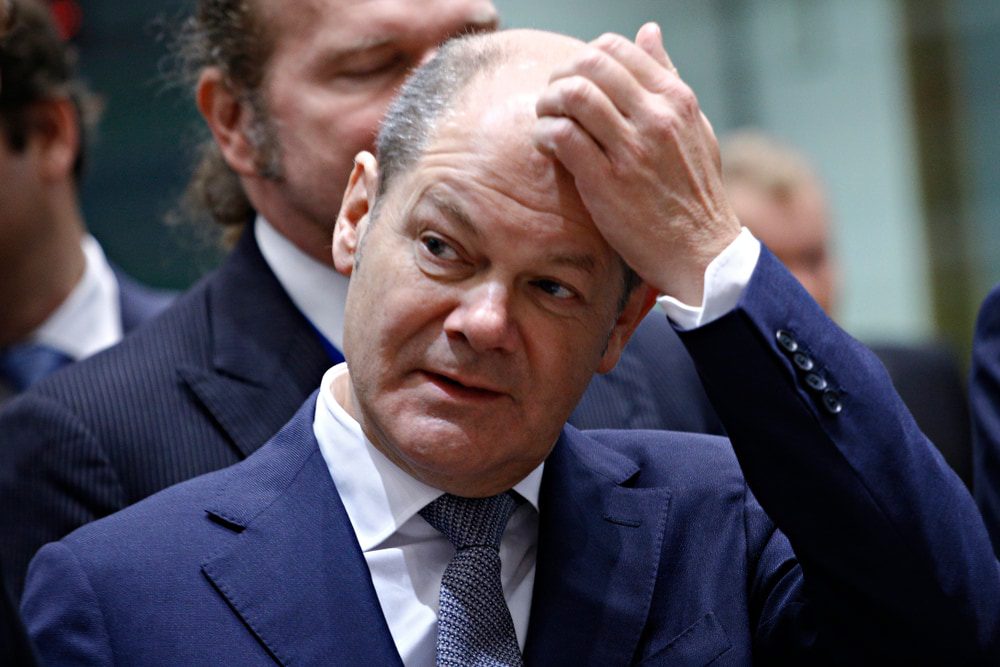
New German Chancellor Olaf Scholz made his first visit to Poland on Sunday December 12th to mark the 30th anniversary of the Good Neighbour and Friendly Cooperation Treaty between the two countries.
Scholz met with Polish Prime Minister Mateusz Morawiecki in an attempt to establish better relations between the two nations that have been increasingly at odds over issues ranging from energy policy to rule of law. Scholz hailed the meeting as a “new chapter” in bilateral relations, Deutsche Welle reported, but it was also clear that serious differences remain.
The two leaders held a joint press conference following their discussion that covered topics from the crisis at the Polish border to the Nord Stream 2 natural gas pipeline.
The German newspaper reported that Morawiecki came out strongly against Scholz’s vision of a federalized Europe. “Uniformity and egalitarianism are not good courses of action,” it reported the Polish Prime Minister said, along with criticizing a federalized European bloc as “democratic centralism, bureaucratic centralism.”
“Europe will be strong if it is a Europe of sovereign states,” Morawiecki reportedly stated.
Morawiecki emphasized his concerns about the Nord Stream 2 gas pipeline that would transport natural gas under the Baltic Sea, bypassing Ukraine. Politico reported Morawiecki reiterated the pipeline “increases the ability of the Kremlin to put pressure on Ukraine and the European Union … We’re very nervous about the scenarios that could take place after the opening of Nord Stream 2.”
Germany has faced international criticism for its plan to increase imports of natural gas from Russia via the still unopened pipeline as it would give Russia more leverage against the West. Scholz replied that he was actively working to wean Germany off Russian natural gas by moving his country to rely solely on renewable energy and that, in the meantime, Germany “will take care of” ensuring the future viability of the Ukraine’s “natural gas transit business,” according to Politico.
In July, Germany signed an agreement with the United States to give Ukraine approximately 40 million in green energy credits and ensure repayment for gas transit fees it will lose starting in 2024.
Morawiecki also expressed concerns about the EU’s climate ambitions, Politico reported, blaming speculation on the bloc’s Emissions Trading System for the recent spike in energy prices in Europe. “We do not want people to suffer as a result of such changes and tendencies,” Morawiecki reportedly said. Morawiecki also announced he would be bringing a proposal to the upcoming European Council meeting to end such speculation.
According to Politico, the two leaders did agree that there needs to be a “swift” end to the rule of law dispute over Poland’s recent changes to judicial appointments, which has led to coronavirus recovery funds being withheld from the Slavic country. The EU considers Warsaw’s changes in how judges are appointed a breach of the democratic rule of law.
Scholz also pledged his support to Poland amid the crisis at the Polish-Belarus frontier. He called the actions of the Belarus government that have led to stranded refugees amassing at the Polish border and attempting to illegally cross into Europe, a “hybrid attack” on the bloc, Deutsche Welle reported.
But Scholz could not resist bringing up the topic of Poland’s demands for war reparations from Germany. “You know the German attitude,” Politico reported the German Chancellor said. “We have concluded treaties that are valid and have settled the past issues and the compensation.”The German newspaper, Welt, characterized Scholz’s statement on war reparation as a blunder in what would otherwise have been a successful encounter with the Polish leader, and reported that it elicited backlash from high-ranking Polish politicians in both the ruling and opposition parties.
